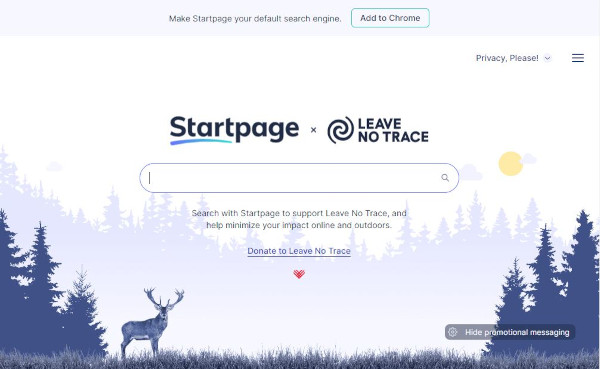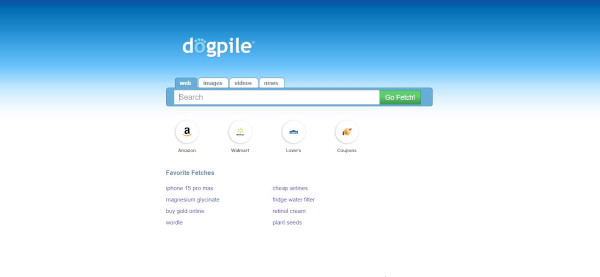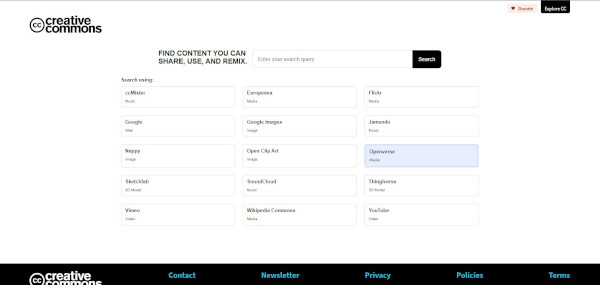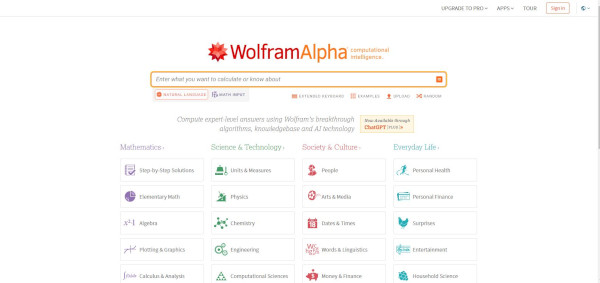The term “search engines” has become as commonplace as the devices we use to access them. These tools are the beating heart of the internet, a global search facilitator that connects us to a world of information with just a few keystrokes. In this article, we’ll explore the top search engines that have revolutionized our access to information and why they’ve become integral to our daily lives.
Table of Content
Mainstream Search Engines
The landscape of digital search is dominated by key players that have become household names. These mainstream search engines have evolved, adapting to new technologies and user needs, and have shaped the way we access information online.
Meet the Giants: Google and Bing

Why We “Google” Everything
Google is more than a search engine.
It’s the way we say we’re looking for answers.
Since 1998, Google has taken over search, rocketing to over 90% of searches worldwide. Search engines have constantly evolved with Google leading the way, often shaping our online experience through significant algorithm updates.
What’s Google’s magic?
Smart algorithms like PageRank and BERT.
They sort billions of pages to find exactly what you need.
Google’s Evolution
Remember when Google just matched keywords?
Now it’s all about understanding you with AI and machine learning.
How did Google get so smart?
And what’s next in Google’s journey?
Unique Google Perks
Google is not just about finding stuff.
It’s got Maps, Scholars, and instant answers with the Knowledge Graph.
Ever used voice search?
Thank Google’s AI for making it so easy.
Google’s Power
Google is huge, not just in size but in speed and smarts.
It’s the benchmark for all search engines.
But how does Google affect the internet’s backbone?
Google Under the Microscope
People love Google, but they worry too.
Is Google too powerful?
What about privacy?
These questions keep popping up.
How does Google handle this heat?
Bing Steps Up

Bing might not be “verb” famous, but it’s still a big deal.
It launched in 2009 and has been trying to catch up with Google ever since.
How does Bing stand out in Google’s shadow?
Bing’s Own Flavor
Bing wows with daily new background images.
Did you know searching on Bing can get you rewards?
It’s also in on the Microsoft action with seamless integration.
Why does that matter to Microsoft fans?
Bing vs. Google
Bing’s got a piece of the pie, but it’s a different flavor than Google’s.
With a unique algorithm, Bing offers its twist on searches. For those aiming to optimize their web presence, understanding the tools and metrics provided by platforms like Bing Webmaster Tools is crucial.
Who prefers Bing over Google, and why?
Bing’s Microsoft Bond
Bing isn’t just a search engine; it’s part of the Microsoft family.
It powers searches from your Windows to your Xbox.
Cortana’s brain? That’s Bing too.
How does this all work together?
Knowing Google and Bing is key in today’s digital landscape.
For getting noticed online or picking the right search tool,
your choice between Google and Bing matters.
What will they do next, and how will it change your online life?
Privacy-focused Search Engine
In an era where your online privacy is under the microscope, new search engines are stepping up to the plate. They’re not just alternatives; they’re champions of a private browsing experience. Amidst growing concerns over data privacy, alternatives like DuckDuckGo and Startpage offer services that prioritize user privacy.
DuckDuckGo: The Privacy Guardian

DuckDuckGo leads the charge, with a promise to never track you. It’s not just a search engine; it’s a statement that your data belongs to you. With a mix of over 400 sources, DuckDuckGo delivers vast information without ever compromising your privacy.
How DuckDuckGo Protects You
DuckDuckGo’s secret? No stored IP addresses or user information. It’s all about the search, not the searcher. Even the ads you see are just reflections of your current search, nothing more.
Startpage: Google Without Tracking

Imagine having Google’s power at your fingertips but with a cloak of invisibility. Startpage is that powerful ally, making you a ghost in the machine.
Startpage’s Toolbox for Privacy
Startpage isn’t just a middleman; it’s a fortress, with tools like a URL generator and an anonymous proxy. They’re not just features; they’re your privacy, guaranteed.
Qwant: The European Privacy Shield

Qwant stands proud in France, a defender of unbiased results and a safe haven from ads based on tracking. In the debate over search neutrality, Qwant stands out by promising unbiased results without tracking users.
Qwant’s Trustworthy Credentials
With the EU’s strong privacy laws backing it, Qwant isn’t just a search engine; it’s a guardian of your personal data’s sanctity.
Brave Search: The New Kid on the Privacy Block

Breaking the mold are new entrants like Brave Search, which aims to redefine user experience with privacy as a core feature. Brave Search isn’t just new; it’s revolutionary. Born from the Brave browser, it’s building a new web, where privacy isn’t an option; it’s the default.
Brave’s Seamless Protection
Integrated with a browser that blocks ads and trackers, Brave Search isn’t just a tool; it’s part of a larger vision for online privacy.
These privacy-centric search engines are more than just tools; they’re a movement. They’re built on the belief that privacy is not for sale. For those who care about their digital footprint, these platforms offer a beacon of hope.
The World Beyond Google
Google may reign supreme globally, but local heroes dominate the search engine scene in their home countries. Outside the English-speaking internet, local players like Yandex in Russia, Seznam in the Czech Republic, Naver in South Korea, and Baidu in China cater to regional preferences.
Yandex: Russia’s Search Powerhouse

Yandex isn’t just a search engine; it’s a cultural connoisseur, tuned to the Russian way of life.
Why Russia Chooses Yandex
With the ability to navigate the complex Russian language and an ecosystem of integrated services, Yandex is more than a search engine; it’s a lifestyle.
Seznam: The Czech Republic’s Digital Companion

Seznam is not just a platform; it’s a community, offering a Czech-tailored web experience.
The Czech Choice: Seznam
With services that resonate with Czech hearts, Seznam retains its charm in a globalized world.
Naver: South Korea’s Internet Pioneer

Naver goes beyond search; it’s a cultural icon in South Korea, shaping the internet experience with innovative services.
Naver’s Cultural Influence
Through unique offerings like ‘Knowledge iN’ and webtoons, Naver isn’t just a search portal; it’s a trendsetter.
Baidu: China’s Gateway to the Web

Baidu offers a window into China’s soul, with services crafted for the Chinese perspective.
Baidu’s Grip on China
Operating under the Great Firewall, Baidu isn’t just a search engine; it’s China’s digital steward.
Sogou: China’s Innovator in Search

Sogou is cutting-edge, blending search with China’s favorite social media to deliver a tailored search experience.
Sogou’s Technological Edge
With AI that anticipates your needs, Sogou’s search engine isn’t just smart; it’s ahead of the curve.
These international search engines aren’t just alternatives; they’re testaments to innovation and cultural identity. They’re the keys to unlocking global markets and understanding the digital landscape’s diversity. Each one is a reminder that the internet is vast, varied, and full of possibilities.
Other Search Engines
While Google may be the colossus of the search engine world, dominating global search queries, the digital landscape is rich with alternative search platforms that cater to diverse needs.
Can Your Searches Plant Trees? Meet Ecosia!

Search engines like Ecosia are carving out a niche by committing to reforestation efforts with the revenue generated from web searches. It takes the money you’d normally give to search giants and puts it into planting trees—how cool is that? With Ecosia, every search you make contributes to a greener planet. They’re transparent, too—financial reports and tree-planting receipts are published for everyone to see.
The Original Internet Pioneer: Yahoo Search

Remember Yahoo? It’s not just a piece of Internet history; Yahoo Search is alive and kicking, powered by Bing. Yahoo keeps users coming back with its suite of tools like Yahoo Finance and Yahoo Sports. It’s not just about searching; it’s about staying informed.
Discover More with Dogpile

Don’t want to miss anything online? Dogpile digs through other search engines to give you the most comprehensive results. It’s for those who wonder what they’re missing on Google or Bing. Dogpile brings the best of multiple worlds into one place.
AOL: More Than Just Search

AOL Search still stands its ground with a straightforward search experience. Plus, it’s part of the bigger AOL portal, where you can catch up on news, entertainment, and more. It’s a slice of the ’90s we still can’t let go of, and why should we? AOL has adapted to stay relevant to its loyal community.
Specialized Search Engines
The online search landscape is indeed diverse, catering to various needs that go beyond just finding the nearest coffee shop or the latest news. Here’s a look at some specialized search engines:
CC Search: A Treasure Trove for Free Content

CC Search is a boon for those hunting for Creative Commons content. It’s perfect for when you need that perfect image for a blog post, background music for a video, or text for educational material. All content is free to use under Creative Commons licenses, making it legal and ethical to share.
Wolfram Alpha: The Fact-Checker’s Dream

Wolfram Alpha takes a unique approach to searching by calculating answers from trusted data. Innovative platforms like Wolfram Alpha demonstrate the potential of computational knowledge engines in transforming data into actionable insight. It’s like having a personal fact-checker for homework, research, or just satisfying your curiosity. Whether it’s math, science, or nutrition facts, Wolfram Alpha crunches the numbers for you.
SlideShare: A Professional’s Go-To for Knowledge Sharing

SlideShare stands out as a LinkedIn-powered repository for professional content. Looking for a compelling presentation? Need an infographic to explain a complex concept? SlideShare is your go-to. It’s also a platform to broadcast your professional expertise by sharing your own content.
These specialized search engines demonstrate the richness of the internet and how it can be leveraged for education, work, and the pursuit of knowledge and resources. They each play a role in enriching the internet as an information resource tailored to specific interests and needs.
The Future of Search Engines
The evolution of search engines is indeed poised to be driven by a blend of advancements in technology, changing user expectations, and new regulatory landscapes. Here’s a closer look at what we might expect:
- AI and Machine Learning: As AI becomes more sophisticated, search engines will become adept at predicting and understanding the nuances of user intent, leading to more accurate and helpful search results. This could mean a more intuitive search process, with AI recognizing patterns in user behavior to tailor the search experience.
- Voice and Conversational Search: The prevalence of voice-activated searches will push search engines to improve their understanding of natural language, making search a more hands-free and seamless experience. This also opens the door for better integration of search functionality into various aspects of smart home technology.
- Visual Search Enhancements: As computer vision and image processing technologies progress, visual search capabilities will expand, allowing for more intuitive and immediate search results based on images, which will be particularly transformative for retail and navigation.
- Deepening Personalization: Search engines will likely use personal data to fine-tune search results more than ever before, which could improve efficiency but also require a reevaluation of privacy standards and user control mechanisms.
- Privacy-Centric Search: In the wake of increased awareness of data privacy, search engines emphasizing user privacy may become more mainstream, balancing the delivery of personalized search results with strong privacy protections.
- Decentralized Search: There’s a possibility that decentralized search engines could distribute the tasks of indexing and ranking across numerous nodes, potentially offering a more unbiased and less monopolized search ecosystem.
- Emergence of New Regulations: The ongoing development of privacy laws worldwide will continue to shape how search engines operate, compelling them to be more transparent and to provide users with greater control over their personal information.
- Innovative Entrants and Technologies: Blockchain might become the backbone of new search engines, offering enhanced security and transparency. Meanwhile, social search engines could refine how we find information based on our social networks and interactions.
The convergence of these trends will define the next generation of search engines. They’ll likely offer a more personalized, intuitive, and integrated experience while raising important questions about privacy and the structure of the internet’s information ecosystem. As these technologies develop, users will have to remain informed and proactive about their choices and the implications for privacy and access to information.
FAQs About Search Engines
What is a search engine?
A search engine is a web-based tool that allows users to find information on the internet by entering search queries. It then retrieves and presents a list of relevant search results that match the user’s query.
Which is the most popular search engine in the world?
The most popular and widely used search engine in the world is Google Search. It dominates the search engine market and provides a seamless search experience for users.
Are there any alternatives to Google Search?
Yes, there are several alternative search engines such as Bing, Yahoo Search, and new search engines like Infinity Search and Search Encrypt. These offer different search experiences and features compared to Google.
How does a search engine work?
A search engine utilizes algorithms to crawl and index web content. When a user enters a search query, the engine retrieves relevant search results from its indexed database and ranks them based on various factors such as relevance and authority.
Why is private search important and how does it differ from regular search engines?
Private search engines focus on protecting user privacy by not collecting personal data or search history. They offer a more private search experience compared to popular search engines like Google, making them the world’s most private search engine.
Can I change my default search engine in my web browser?
Yes, most modern web browsers allow users to change their default search engine to another of their choice. This allows users to use a search engine of their preference for all web search queries.
Conclusion
As we draw the curtain on our journey through the diverse world of search engines, it’s evident that our online quests for knowledge are as varied as the tools we use to seek it out. We’ve seen that whether it’s for sustaining privacy, supporting global ecosystems, or simply finding the quickest answer to a question, there’s a search engine out there tailored to our needs.
In harnessing the power of AI and personalization, search engines are not only tools but also companions in our digital navigation, evolving daily to serve us better. However, with great power comes great responsibility. We must tread carefully on the tightrope of technology that promises convenience but demands vigilance over our personal data.
Let’s move forward with an appreciation for these digital marvels and a critical eye toward how they shape our understanding of the world. As we continue to click, type, and voice out our queries, let’s not forget that behind every search result is a complex interplay of technology, ethics, and the human element that binds them together.
May our searches always be fruitful, our information reliable, and our digital footprints secure. Here’s to finding what we’re looking for and discovering what we didn’t know we needed to find.




